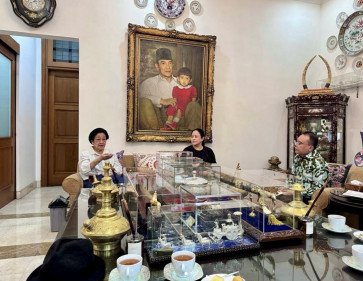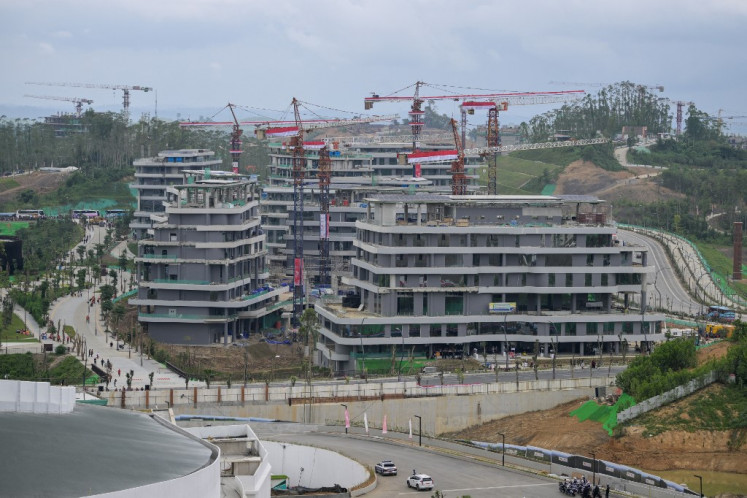Revision of draconian punishment demanded
An influential customary council told the Bali’s customary villages to revise several draconian punishments, including the widely criticized practices of alienation and expulsion
Change text size
Gift Premium Articles
to Anyone

A
n influential customary council told the Bali’s customary villages to revise several draconian punishments, including the widely criticized practices of alienation and expulsion.
The Grand Council of Customary Villages (MUDP), an umbrella organization overseeing Bali’s more than 5,000 desa pekraman (customary villages), issued the instruction during its annual meeting Friday. The desa pekraman is a very powerful social institution in Bali because it is responsible for carrying out various intricate elements of traditional law and ceremony. Each desa pekraman has its own set of written laws called awig-awig, and unwritten conventions called sima and dresta.
It is almost impossible for a Balinese not to be affiliated with this age-old institution because they require its support and assistance throughout their lives — from birth, marriage to burial.
The communal nature of both Balinese Hinduism and traditional village life have led the Balinese to respect and fear the authority of the desa pekraman even more than modern institutions, such as the administrative village and their workplace.
Two of the most notorious punishments dispensed by desa pekraman for violations of traditional law are alienation (kasepekang) and expulsion (kanorayang). Under the alienation punishment, the desa pekraman forbids its members from making any contact with someone found guilty of violating traditional law. Moreover, the guilty party would no longer be allowed to use any public facility managed by the customary village, including its market, temples and cemetery.
There have been many cases in the past where the corpses of the alienated were left unattended by the roadside while their families lobbied the desa pekraman to allow them use of the village cemetery.
Under expulsion, the desa pekraman mobilizes its members to drive the offender away from the village territory, where he will be barred from ever returning.
The new MUDP’s instruction stipulates that an offender sentenced with alienation would still be able to use village temples and would maintain burial rights.
The instruction also states that both the alienation and expulsion punishments should be temporary, and the desa pekraman should set a specific time limit for the sentences.
The instruction clarifies that for a serious breach of traditional laws, an offender should be sentenced to a maximum expulsion of three years.
“We have to reform our traditional laws so they become more civilized and more in line with the modern interpretation of human rights,” the council’s secretary I Ketut Sumarta said during the Friday meeting.
The council’s vice chairman, Dewa Ngurah Swastha, warned that the failure to reform the traditional laws would bring grave consequences.









